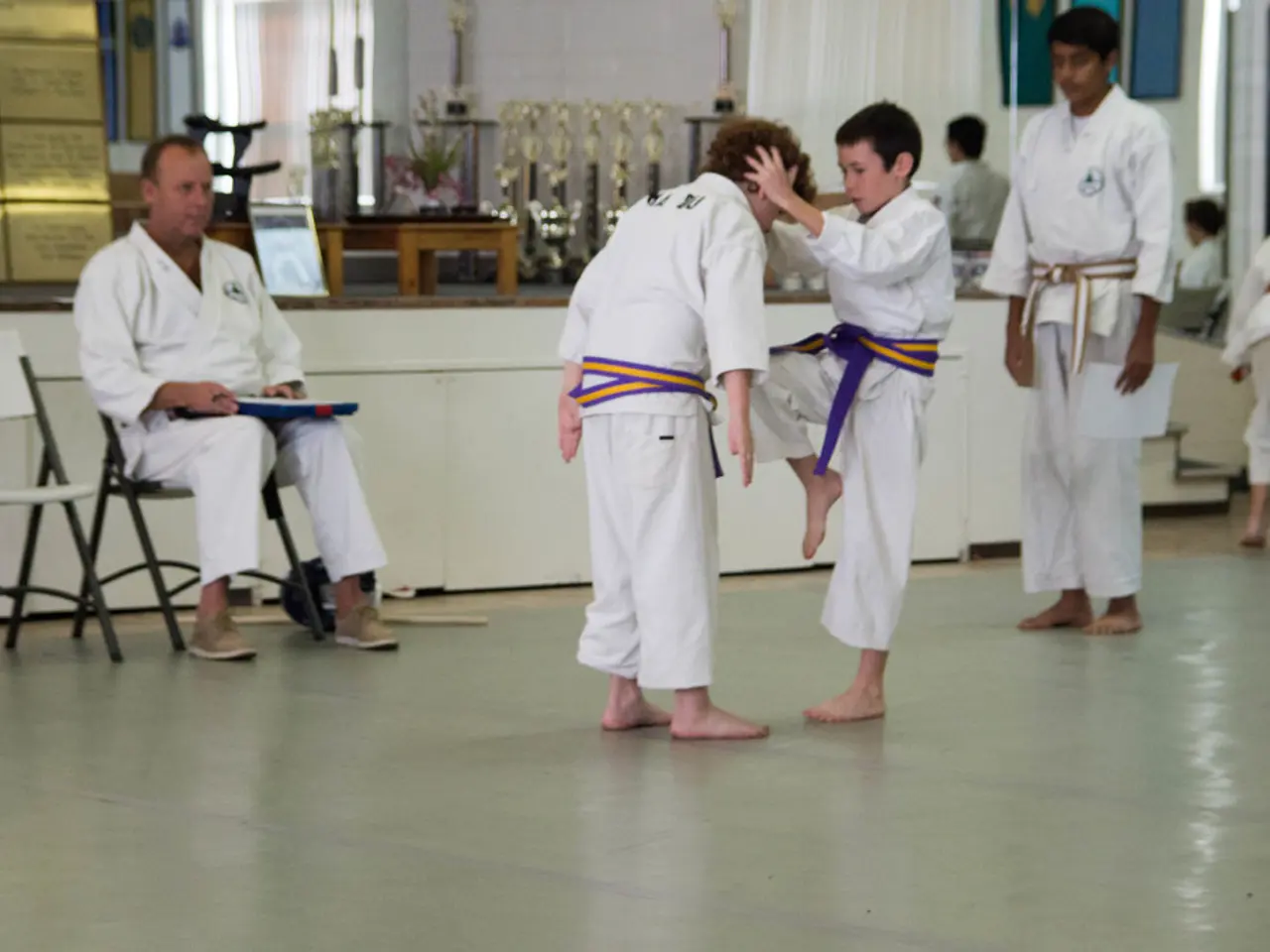Enhancing Your Cognitive Reserves for Alzheimer's Prevention: Discover Strategies that Work for You
Engaging in specific brain-stimulating activities for as little as 10 minutes daily can help build cognitive reserve, potentially delaying or preventing symptoms of cognitive decline. This discovery opens up a world of opportunities for individuals to take charge of their mental health and cognitive function.
Short-term cognitive stimulation, such as language-based tasks or computerized training combined with physical exercise, has been shown to improve memory functions and global cognition in older adults, including those with mild cognitive impairment. A multidomain intervention combining aerobic and resistance exercise with computerized cognitive training over several months improved cognitive test scores significantly more than exercise alone in older adults with mild cognitive impairment.
The aging brain retains neuroplasticity, the ability to reorganize itself based on cognitive engagement, which helps delay age-related deterioration of memory. Physical exercise alone, even a short session monthly before age 50, correlates with slower brain aging, likely via enhanced blood flow, neuron growth, and increased levels of brain-derived neurotrophic factor (BDNF), a protein crucial for learning and synaptic plasticity.
The holistic approach to brain protection emphasizes the importance of physical activity, mental challenges, social engagement, nutritional support, stress management, and quality sleep. Activities integrating physical and cognitive components deliver enhanced benefits. Starting brain-protective activities at any age yields significant results.
Occupations requiring complex problem-solving, creativity, and social interaction provide substantial cognitive benefits. Perspective-shifting exercises strengthen cognitive flexibility by approaching current problems from different angles. Novel experiences stimulate neuroplasticity and create new neural connections.
Cognitive reserve, a neural safety net that kicks in when primary brain pathways begin to fail, can be built through daily activities. Cognitive reserve-building is accessible and requires no prescription or expensive equipment, just consistent, intentional engagement with diversified activities that challenge and delight the brain.
Pair new brain-building habits with existing daily activities to leverage established behavioral patterns (e.g., practice memory exercises during morning coffee). Start microscopically small by dedicating just two minutes daily to a chosen brain-building activity and gradually extend duration as the habit solidifies.
Regular social interaction strengthens neural networks through complex cognitive processing. Digital learning microbursts trigger neurochemical conditions ideal for building cognitive reserve with short educational sessions, language lessons, and coding exercises. Dancing and learning martial arts provide benefits through physical movement, sequence memorization, and strategic thinking.
Building cognitive reserve is an investment in future quality of life, providing extended mental clarity, independence, and identity preservation. The preservation of identity and function in the face of neurodegenerative challenges may represent the ultimate achievement in healthy aging. It is never too late to start protecting your brain.
Mental health and wellness can benefit significantly from incorporating science-backed activities that stimulate the brain, such as mental exercises, computerized training, and physical activity, which have been proven to improve cognitive function in aging individuals. Furthermore, the holistic approach to brain protection includes not only physical activities but also mental challenges, social engagement, nutritional support, stress management, and quality sleep. Engaging in a combination of these activities can help build cognitive reserve, potentially delaying symptoms of cognitive decline and offering a path towards healthy aging.




